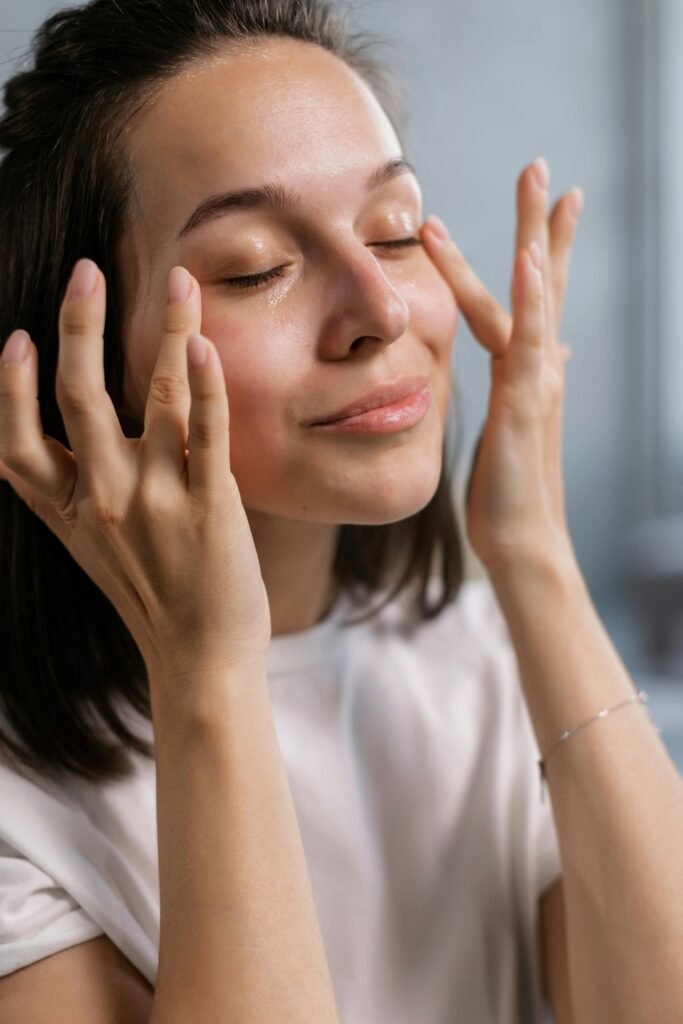Learn why moisturizing is essential for healthy, glowing skin. Discover expert skincare tips for every skin type—especially if you’re just starting out!
How Important Is It to Moisturize?
Keeping your skin hydrated is one of the most essential steps in any skincare routine—but just how important is it to moisturize, and what happens if you don’t? Whether you’re a skincare newbie or building a serious self-care ritual, understanding the role of moisturizers can change the way you see your skin.
In this guide, we’ll break down:
- Why moisturizing is essential for all skin types
- The benefits of daily hydration
- Common myths about moisturizers
- How to choose the right one for your skin
- Expert tips to get the most from your moisturizer
Why Moisturizing Is Crucial for Healthy Skin
Moisturizing doesn’t just feel good—it’s a critical defense mechanism for your skin. Here’s why:
1. It Strengthens Your Skin Barrier
Your skin barrier is your body’s natural shield against pollution, UV rays, and bacteria. When it’s dry or compromised, you’re more prone to:
- Breakouts
- Irritation
- Redness
- Premature aging
A good moisturizer reinforces this barrier and helps your skin retain moisture throughout the day.
2. Hydration = Glow
Moisturized skin looks smoother, plumper, and more radiant. When your skin is dry, it can appear dull and flaky. Hydration helps:
- Minimize the look of pores
- Smooth fine lines
- Improve elasticity
What Happens If You Skip Moisturizer?
Skipping this step—especially after cleansing—can throw your skin off balance. You may experience:
- Overproduction of oil (especially with oily skin types)
- Increased sensitivity
- Faster aging signs (wrinkles, sagging)
Even oily or acne-prone skin needs moisture—just the right kind!
How to Choose the Right Moisturizer
Different skin types need different types of moisturizers. Here’s a quick guide:
| Skin Type | Moisturizer Type |
|---|---|
| Dry Skin | Rich creams with ceramides & shea butter |
| Oily Skin | Lightweight gel or water-based formulas |
| Combination | Balancing lotion (oil-free preferred) |
| Sensitive Skin | Fragrance-free, calming ingredients |
| Aging Skin | Products with hyaluronic acid, peptides |
When and How to Apply Moisturizer
Best Times to Apply:
- Morning (after cleansing and serum)
- Night (before bed for repair)
Application Tips:
- Apply to damp skin to lock in hydration
- Use gentle, upward strokes to avoid tugging
- Don’t forget your neck and décolletage
Common Myths About Moisturizing
❌ Myth 1: Oily skin doesn’t need moisturizer
✅ Fact: Depriving your skin of moisture can trigger more oil production.
❌ Myth 2: You only need it in winter
✅ Fact: Sun, wind, and air conditioning also strip moisture year-round.
❌ Myth 3: Natural oils are enough
✅ Fact: Oils seal in moisture—they don’t add hydration.
Expert Moisturizing Tips for Maximum Results
- Always apply moisturizer within 60 seconds of washing your face.
- Layer with SPF in the morning to protect your glow.
- Use night creams or sleeping masks for deep overnight hydration.
- Combine with serums for a custom skincare cocktail.

❓FAQs❓
Q1: Should I moisturize if I have oily skin?
A: Yes! Use a lightweight, oil-free moisturizer to prevent dryness-induced oiliness.
Q2: How often should I moisturize my face?
A: Twice daily—once in the morning and once at night after cleansing.
Q3: Can moisturizer prevent wrinkles?
A: It can delay signs of aging by keeping skin plump and reducing fine lines caused by dryness.
Don’t Skip the Moisture!
Moisturizing isn’t a luxury—it’s a skincare essential. Whether your goal is a dewy glow or a strong barrier against aging, finding the right moisturizer (and using it regularly) is a game-changer.
Try this: Add a hydrating step to your routine this week—and let your skin show the difference!
Want more skincare guides? Check out our blog for DIY tips, product reviews, and beauty inspiration.
